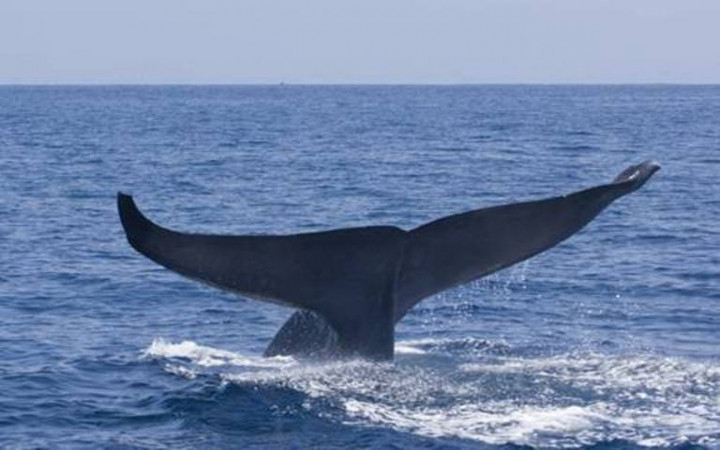Today’s Wonder of the Day was inspired by emily. emily Wonders, “Why are whales so huge?” Thanks for WONDERing with us, emily!
Blue whales are the largest animal ever known to have lived, even larger than the dinosaurs who once roamed the Earth. In fact, the longest blue whale ever measured was 111 feet long — about the length of three school buses parked end to end.
Scientists have noted two causes for the blue whale’s massive size. First, the blue whale lives in the ocean. Since the ocean covers over 70 percent of the Earth’s surface, whales have plenty of room to grow and swim.
They also use the buoyancy of the salt water in which they live. Whales don’t rely on a skeleton like humans do, due to the effects of gravity. The water surrounding them supports their weight which allows them to reach such an enormous size.
Even though they are huge, the blue whale’s diet is almost all krill — small shrimp-like creatures. The whale gathers thousands of krill at a time by sucking in enormous mouthfuls of seawater. As the whale closes its mouth, it flushes seawater out through a special filter called a “baleen”, leaving krill and small fish behind for the whale to swallow. This is called “lunge feeding.” Krill are found in every ocean.
Coming across such a giant creature in the ocean may seem scary, but blue whales are harmless to humans. In fact, they even have some things in common with us!
Blue whales are warm-blooded mammals. Unlike fish, they must breathe air.
Research also shows that blue whales are very and intelligent. They even have their own form of language used to communicate with other whales. Listen to what they have to say!
Here are some other fun facts about blue whales:
The heart of an adult blue whale is the largest of any mammal.
A blue whale's heart can weigh up to 1,300 pounds and is the size of a Volkswagen Beetle.
The tongue of an adult blue whale is approximately the same weight as an adult elephant.
What about baby blue whales? Here are some fun facts about blue whales’ “little” ones:
At birth, a blue whale calf is about the size of a hippopotamus.
A baby whale can drink up to 100 gallons of milk every day during its first seven months of life.
With that kind of diet, it should come as no surprise that a baby whale can gain up to 200 pounds a day.
Standards: CCRA.R.1, CCRA.R.2, CCRA.R.7, CCRA.R.10, CCRA.L.3, CCRA.L.4, CCRA.L.5, CCRA.L.6, CCRA.SL.1, CCRA.SL.4




